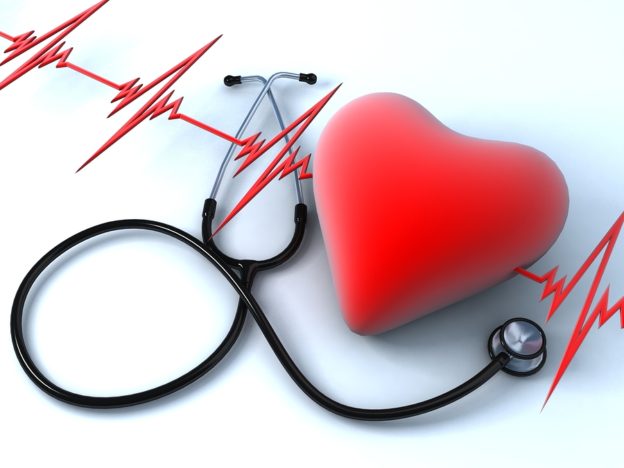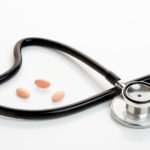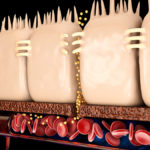By David Blyweiss, M.D., Advanced Natural Wellness
October 7, 2019
We used to think saturated fats were heart-stopping killers.
But for years now, we’ve known this isn’t true.
In fact, saturated fats don’t increase your risk of heart disease, stroke, cardiovascular disease, diabetes or death.
Yes, read that sentence again…
Saturated fats don’t increase your risk of heart disease, stroke, diabetes or death!
For a long time, people believed they needed to cut these fats from their diet to improve cholesterol levels — including both LDL and HDL. And people watched their cholesterol levels like a hawk.
But, again, they were wrong… let me explain.
LDL Levels Aren’t What Count the Most
Open your arteries, improve blood flow for a new health miracle...
Did you know your circulatory system has over 60,000 miles of arteries, veins and other blood vessels, if stretched end to end?
But as you age, your blood vessels undergo changes, which may cause them to stiffen, thicken and get clogged.
GOOD NEWS! Doctors have now identified a “Miracle Molecule” inside your arteries that helps OPEN your arteries and IMPROVE blood flow.
It’s what Dr. Valentin Fuster calls it, "One of the most important discoveries in the history of cardiovascular medicine."To you, that means...
- Healthy blood pressure
- Sharper mind and memory
- Skyrocketing energy and muscular strength
- Increased pleasure and passion in the bedroom
- Improved circulation to every cell and organ in your body
Go here to discover a new natural way to significantly boost the levels of this miracle molecule in YOUR body NOW!
First off, it’s important to recognize neither LDL nor HDL is actually cholesterol.
These terms refer to low and high density lipoproteins – they’re simply transporters that carry proteins, fats, triglycerides and cholesterol throughout the bloodstream.
Think of it like a freeway filled with automobiles. Each car may carry a man, women, and child. But we don’t say “the people are clogging the freeway!” No, we say the “cars” are clogging the freeway.
So, don’t put all the blame on cholesterol. It’s just a passenger.
Then why are fat and cholesterol so closely tied to heart disease?
Well, they aren’t. And this is where conventional medicine is making a big mistake these days.
You see, it’s not your LDL, HDL and total cholesterol measures that count the most when it comes to your heart health.
Instead, the most critical measure is the quality of your low and high density lipoproteins.
In particular, LDL comes in different sizes. Some of the particles are big and fluffy and literally bounce off the walls of your blood vessels. These large LDL particles remain in your bloodstream and do their job.
The real problem comes from the small, dense LDL particles.
These small particles tend to slip through the lining of your blood vessels where they can do the most damage. They start oxidizing and inflammation sets in. Plaque starts accumulating and blockages begin to develop.
Are You Suffering From...
- Love handles and a pot belly
- Romance that isn't what it used to
- Forgetfulness and inattention
- Low (or no) strength and endurance
- A sex drive that's shifted into neutral...or worse
If so...you may have Mature Male Burnout. Click here to discover more about this unique condition and what you can do about it.
It’s these small, dense particles that provide a true measure of your cardiovascular risk. And it could explain why nearly 75 percent of patients hospitalized for a heart attack have normal levels of cholesterol.
Remember, it’s not the cholesterol levels that matter so much as the types of cholesterol – namely these small dense LDL particles.
Saturated Fats Boost the Quality of Your LDL
Now, saturated fats have been demonized for years – which is part of the problem. In an effort to avoid saturated fats, people began swapping in other unhealthy foods.
For example, replacing saturated fats with carbohydrates is a big mistake. Eating a diet high in carbs goes to work immediately to create smaller and more dangerous LDL particles. “The improvement of large High-Density Lipoprotein (HDL) particle levels,… depends on effects of low-carbohydrate diet…”
And, of course, replacing saturated fats with trans fats was an even bigger mistake. (Please don’t ever eat trans fats!) Trans fats also lead to a harmful increase in small, dense LDL particles.
Saturated fats, on the other hand, have a positive effect on LDL particles. Not only do these fats increase concentrations of large, bouncy LDL — they also improve HDL levels!
Now, this doesn’t mean you should suddenly start loading up on saturated fats. Your diet should be well-rounded with plenty of fruits, veggies, nuts, fats and animal proteins.
However, if you buy artificial foods like margarine, non-dairy coffee creamer and egg-beaters just to avoid saturated fats, you’re probably doing yourself more harm than good.
You’ll be much better off eating the real versions of these foods – butter, cream, eggs – as long as you keep it within reason and they are organic or free range raised.
In the meantime, ask your doctor to run Apo A-1 and Apo B blood tests to determine your LDL particle size profile.
If it turns out you have an abundance of small, dense LDL, make sure to cut back your intake of high glycemic carbs, processed foods and commercial vegetable oils.
Then, start taking extended release niacin in divided doses; beginning with just half of a 100 mg tablet – increasing by 50 mg a week.
If you notice a red flush on your skin after taking niacin, just think of it as your blood enriching your skin with oxygen. The flush that happens may be minimized with an aspirin taken at the same time and should only be there for around 15-20 minutes.
The niacin has a specific effect on the smaller, more dangerous LDL particles. Plus, it enhances the role of large HDL particles, which also reduces cardio risk.
By the way…
It’s important to note statin drugs do nothing to reduce the amount of small, dangerous LDL particles in your bloodstream. In fact, statins can increase the number of these killer particles.
SOURCES:
https://www.ncbi.nlm.nih.gov/pmc/articles/PMC4834750/
Siri-Tarino PW, et al. Meta-analysis of prospective cohort studies evaluating the association of saturated fat with cardiovascular disease. Am J Clin Nutr. 2010 Mar;91(3):535-46.
Siri PW, Krauss RM. Influence of dietary carbohydrate and fat on LDL and HDL particle distributions. Curr Atheroscler Rep. 2005 Nov;7(6):455-9.
Dreon DM, et al. Change in dietary saturated fat intake is correlated with change in mass of large low-density-lipoprotein particles in men. Am J Clin Nutr. 1998 May;67(5):828-36.
Srivastava RA. Saturated fatty acid, but not cholesterol, regulates apolipoprotein AI gene expression by posttranscriptional mechanism. Biochem Mol Biol Int. 1994 Sep;34(2):393-402.
John M. Morgan, M.D. et al. Effects of extended-release niacin on lipoprotein subclass distribution” American Journal of Cardiology. June 2003; Volume 91, Issue 12, Pages 1432-1436, 15
Choi CU, et al. Statins Do Not Decrease Small, Dense Low-Density Lipoprotein. Tex Heart Inst J. 2010; 37(4): 421–428.
Amit Sachdeva, MD et al. Lipid levels in patients hospitalized with coronary artery disease: An analysis of 136,905 hospitalizations in Get With The Guidelines, American Heart Journal. 2009; 157(2): 111-117







